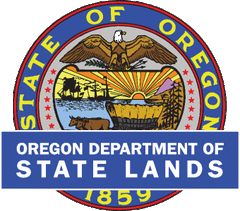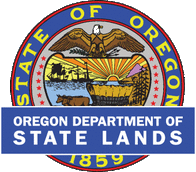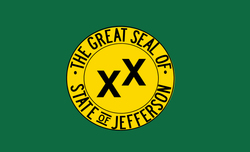 FROM: Teri Grier, North Bend DATE: December 28, 2016 Editorial by Teri Grier In 2012 when Democratic Representative Caddy McKeown was first elected, she beat her Republican challenger by nearly 3,300 votes. In her 2014 re-election, like most incumbents, she was able to increase her vote margin, beating her Republican opponent by over 4,700 votes. But in the two years that followed, McKeown began to lose the trust of voters in our community as she curried favor with Portland-area lawmakers and businesses. During the last two years, Portland-area Democrats have marched McKeown up the hill on legislation that has increased fees to taxpayers and will harm small business. Voters noticed. In a race where McKeown outspent me by nearly $250,000, she only won by 1,111 votes – a full 3,562 voters abandoned her in 2016. It’s my hope that as she heads into the next legislative session, she takes notice and remembers who she is supposed to represent. Legislators in Portland are proposing everything from rent control to environmental policy that will make it even harder for those of us in rural Oregon to find work. Our Oregon, the group that backed the failed Ballot Measure 97, a $6 billion dollar tax increase, is now trying to overturn the will of voters with a $4 billion dollar tax increase proposal. Many of the same special interests that backed Measure 97 also back McKeown. Will she be able to resist her donors and stand with her community that opposed Measure 97, or will she support a revenue-raising package at our expense? McKeown will serve again as chair of the Transportation Committee. In 2015, Democrats failed to pass a transportation package. The one that was proposed had plenty of giveaways for Portland-area lawmakers but very little for the rural and coastal parts of our state. Additionally, the Senate President wanted millions in money to seismically retrofit the Salem Capitol, but little was to be seen in proposals for seismic dollars to protect coastal residents in tsunami zones. Will we be ignored again? Even more disappointing is the disappearance of a committee dedicated to rural communities. Will McKeown continue to vote for a Speaker of the House who cares so little for the state outside her own insulated pocket of Portland? The Portland-metro area has plenty of representation without Representative McKeown siding with them. Maybe she should consider running for Speaker, or supporting anyone else, who will prioritize the hundreds of thousands of Oregonians who don’t make Portland their home. Voters are watching. We have a need for real infrastructure investments and leadership that will get our government spending in line. We see how the rest of the country is bouncing back from the recession and enjoying economic boosts. It is unacceptable that Oregon’s huge budget deficit, caused by uncontrollable state spending that House Democrats fail to address, is continuing to stall Oregon’s economic recovery. I respect the will of our voters in choosing Representative McKeown again. But we’re not going to sit by and watch as she continues to go-along-to-get-along with Speaker Kotek’s agenda. The session starts next month. Let’s hope this election sends a strong message that voters want McKeown focused on the people who elected her, not downtown Portland agendas or special interests. Teri Grier North Bend, OR Related Posts: LTE ~ Open Letter to Mayor and Councilors of Coos Bay on Wastewater Treatment LTE ~ Colombia County Approves Second Amendment Preservation Petition LTE ~ Occasionally the Righteous can Still Win LTE ~ Rigging Elections Using Three Proven Mechanisms LTE ~ Help Support the Right to Pursue Fishing, Hunting, & Plinking LTE ~ Irrational Opposition to the Patriot Movement in Saint Helens, OR LTE ~ An Open Letter to the Mayor of Coos Bay Crystal Shoji from Fred Kirby LTE ~ Mark Daily Running on Two Issues, User Rate Fees & Best Available Tech LTE ~ Judge Candidate Ryan Hughes was Libeled & Slandered Anonymously LTE ~ Coos Bay Wastewater at a Turning Point LTE ~ North Bend Airport Manager Might be "Nuts"  ODFW seeks Landowner Representatives for Access and Habitat Program – Apply by Jan. 30, 2017 December 19, 2016 SALEM, Ore. – ODFW is currently accepting applications for several positions on the statewide board and regional councils for the Access and Habitat Program. Apply by Monday, Jan. 30, 2017 to be considered. The positions being recruited are:
To apply, use either the Board Application or Regional Council Application on the Access and Habitat Get Involved webpage and follow the instructions. All positions are volunteer. People with an interest and experience in forestry, agriculture or ranching, and hunting and wildlife conservation are encouraged to apply. Applicants should be willing and able to work collaboratively with landowners, sportsmen’s groups, ODFW staff and other government agencies to facilitate the A&H Program. Regional council applicants should live or work in the region they want to represent (see map). Duties of the position including participation in up to four public meetings each year in various communities in their region to review A&H project proposals and conduct other council business. Statewide board members are appointed to four-year terms by the Fish and Wildlife Commission. They meet four times each year in various communities throughout the state to review project funding applications, hear public testimony and act as liaisons between the program and the public. The Board is made up of seven volunteers — three landowner representatives, three hunter representatives, and the Chair — who review and recommend wildlife habitat improvement and hunting access projects to the Commission. The Access and Habitat Program is funded by a $4 surcharge on hunting licenses. Funds are distributed through grants to individual and corporate landowners, conservation organizations, and others for wildlife habitat improvement and projects to provide hunter access throughout the state. Please contact Isaac Sanders at (503) 947-6087 or visit http://www.dfw.state.or.us/lands/AH/get_involved.asp for application forms and more information. ### Contact: Michelle Dennehy (503) 947-6022 [email protected] Fax: (503) 947-6009 Related Posts: OR State Land Board Public Meeting December 13, 2016 ~ Sell the Elliot Forest ODFW ~ Deer virus confirmed in Coos County ODFW ~ Hosts Town Hall On Proposed 2017-19 budget North Bend May 4, 2016 ODFW ~ Commission Meeting in Bandon Friday April 22, 2016 ODFW ~ Harassing Cormorant to Protect Salman but Still a Crime for the People ODFW ~ Public Meeting Coquille Valley Wildlife Area Discussion Wed. March 2, 2016 OFRI ~ Fish Passage & Habitat Workshop Wednesday, March 9, 2016 NOAA Proposed Recovery Plan for Coho Salmon September 2015 Fish and Wildlife Commission delists wolves statewide in split vote (4-2) Coos Bay Area Chamber of Commerce Breakfast Meeting w/ODFW October 16, 2015 Coos County Approves Nature Conservancy's Tide Gate for China Camp Creek ODFW ~ Conservation Opportunity Areas for Stealing Private Property Court of Appeals Upholds City’s Ability to Charge Non-Residents More for Water On Wednesday, the Oregon Court of Appeals released its decision in Manley v. City of Coburg, concluding that under the terms of its water-services contract, the city was not required to charge non-resident water users the same rate it charged to residents. Although the court based its decision on the terms of a 1963 water services agreement between the city and a developer, cities that provide water to non-residents and those with similar water services agreements should be aware of this case. Cities are encouraged to review this case with their city attorneys if they have questions about whether or how this case impacts contractual obligations. Contact: Philip Thoennes, Assistant General Counsel – [email protected] Court Rules Sick Leave Law is Unfunded Mandate On December 8, the Linn County Circuit Court issued a ruling on SB 454, which requires certain employers, including cities and counties, to provide up to 40 hours of paid sick leave per year to each of their employees. The bill passed during the 2015 legislative session and became law January 1, 2016. Eight counties joined together to challenge SB 454 as an unfunded mandate provision in the Oregon Constitution. Under that constitutional provision, local governments have the right to decline to participate in unfunded programs mandated by the state, when certain conditions are met. (LOC has developed a guide to understanding Oregon’s unfunded mandate law, which can be read here.) The circuit court agreed with the counties and concluded that they did not have to follow the new sick leave law.  Newsroom Article Content Dec. 13, 2016 For immediate release 16-19 More information: Julie Curtis – 503-510-6860; [email protected] Elliott State Forest ownership transfer process to continue Land Board provides direction to staff at Dec. 13 public meeting Salem – The Department of State Lands (DSL) will continue to work with the proposers of the plan that was submitted for new ownership of 82,500 acres of Common School lands within the Elliott State Forest. The plan was submitted by Lone Rock Timber Management Company, in cooperation with The Cow Creek Band of Umpqua Tribe of Indians and The Confederated Tribes of Coos, Lower Umpqua and Siuslaw Indians, and with support and advice from additional organizations and tribes. There was no decision made or vote taken at the meeting on Dec. 13. Emphasizing the need to ensure protections for public access to the forest, the State Land Board provided the following direction to DSL staff:
The board also challenged stakeholders to step up to find a solution to utilize up to $100 million in potential state bonding towards an alternative public ownership approach. The State Land Board consists of Governor Kate Brown, Secretary of State Jeanne P. Atkins and State Treasurer Ted Wheeler. The Department of State Lands administers diverse natural and fiscal resources. Many of the resources generate revenue for the Common School Fund, such as state-owned rangelands and timberlands, waterway leases, estates for which no will or heirs exist, and unclaimed property. Twice a year, the agency distributes fund investment earnings to support K-12 public schools. The agency also administers Oregon’s Removal-Fill Law, which requires people removing or filling certain amounts of material in waters of the state to obtain a permit. #### www.oregonstatelands.us OR State Land Board Public Meeting December 13, 2016 ~ Sell the Elliot Forest  Hey Folks, The only way to save the Elliot Forest is to sell the Elliot Forest. The feds own 53% of Oregon, which is entirely too much land to be in the hands of bureaucracies in DC. The state retains less than 3% ownership of state land, which translates to about 1.7 million acres. The Elliot forest makes up about 93,000 acres of that total, which means there is plenty of public/government property for outdoor recreation. Some of the groups who are opposed to the sale are hunters, hikers, anglers and other outdoorsman and they are under the impression that someone, in this case the government, should provide them the land for those activities. Even though, they have a right to pursue the hunt, the hike, and the fish, unfortunately the US government has no Constitutional authority to use the might of its force to keep property off the market to provide the natural resources for those endeavors. The state constitution does allow for land conservation, but does not specify how much of.the land except in Article VII. The state has to be limited to what it can own or there is no private property rights. Oregon´s Constitution, Article VIII, Section 5(2), specifies that the Board …shall manage lands under its jurisdiction with the object of obtaining the greatest benefit for the people of this state, consistent with the conservation of this resource under sound techniques of land management. The "greatest" way for the individual or group of individuals to attain the means of their pursuit is to buy the land outright for their own desires and pay the same taxes as the rest of us, which is too much. The way to lower those property taxes is to get more property in the market by selling government property to the public. Then it is time to close down the Oregon Department of State Lands for even more savings. The proof of my claim is in the following statement from a local environmentalist group trying to rile up hunters, anglers and others….Rob T. December 13, 2016: This is not an LNG related item but very important just the same. CALLING ON ALL HUNTERS AND FISHERMEN. Private forest landowners like Weyerhaeuser have now all but priced locals out of their lands for hunting and fishing, unless you can afford their exuberant fees… In addition to the State’s hunting licensing and permit fees, Weyerhaeuser charged an additional $700 for two people in my family to hunt for 5 days on their lands last year. This is exactly what we can expect from the Elliott too, if the State allows our public lands to be sold to private companies. The Elliott State Forest — 92,000 acres of your public lands — is in the process of being sold by the State of Oregon. On December 13th the State Land Board will meet to decide the fate of the Elliott. Once your public land is gone it can never be recovered.  Newsroom Article Content Dec. 6, 2016 For immediate release 16-16 Contact: Julie Curtis - 503-986-5298; [email protected] Department of State Lands to report on Elliott State Forest Ownership Transfer Opportunity on Dec. 13 Salem - The Department of State Lands (DSL) will be providing information about the one ownership transfer plan received for the 82,500 acres of Common School lands within the Elliott State Forest at the State Land Board's Dec. 13 public meeting. The meeting will be held in a different location to accommodate the public: Dec. 13, 2016 10:00 a.m. -- 1:00 p.m. Keizer Community Center 930 Chemawa Road NE Keizer, OR In the spring of 2014, after more than a decade of trying to resolve declining Common School Fund revenues from the Elliott, and confronted with a projection of ongoing deficits, DSL began a broad outreach effort to solicit public input into resolving the dilemma. The results of this outreach and related technical analyses were presented to the Land Board, and in August 2015 the Board approved moving forward with an approach -- the Elliott State Forest Ownership Transfer Opportunity Protocol -- to identify a new owner for the Elliott property. Over the past 16 months, DSL has been implementing the Protocol, engaging the public and about 50 entities that expressed interest, and completing extensive due diligence on the property. By the deadline of Nov. 15, 2016, DSL had received one ownership plan for the Elliott. The plan was submitted by Lone Rock Timber Management Company, in cooperation with two federally recognized Indian tribes: The Cow Creek Band of Umpqua Tribe of Indians and The Confederated Tribes of Coos, Lower Umpqua and Siuslaw Indians, and with support and advice from additional organizations and tribes. The plan was reviewed by the Department of State Lands and Department of Justice, and deemed responsive to the criteria outlined in the Protocol:
The Land Board will be asked to provide input and direction on proceeding with the development of an offer of direct sale, and on exploring options with the potential new owner and additional partners. Public testimony will be accepted at the meeting. All speakers will need to sign in when they arrive. The Department anticipates a maximum of two minutes will be allotted to each speaker. It is possible that the time will be shorter if needed to accommodate the public requesting to speak. People are encouraged to bring written copies of their comments in case time constraints prevent everyone from speaking. All oral and written comments will be made part of the official record. The meeting will be held in a facility that is accessible for persons with disabilities. If you need assistance to participate in this meeting due to a disability, please notify Lorna Stafford at (503) 986-5224 or [email protected] at least two working days prior to the meeting. Elliott agenda item: http://www.oregon.gov/dsl/SLB/docs/2016_docs/slb_dec2016_item2.pdf The State Land Board consists of Governor Kate Brown, Secretary of State Jeanne P. Atkins and State Treasurer Ted Wheeler. The Department of State Lands administers diverse natural and fiscal resources. Many of the resources generate revenue for the Common School Fund, such as state-owned rangelands and timberlands, waterway leases, estates for which no will or heirs exist, and unclaimed property. Twice a year, the agency distributes fund investment earnings to support K-12 public schools. The agency also administers Oregon's Removal-Fill Law, which requires people removing or filling certain amounts of material in waters of the state to obtain a permit. #### www.oregonstatelands.us State Land Board Since statehood in 1859, the Land Board has been composed of the Governor (chair), Secretary of State and State Treasurer. Governor Kate Brown was sworn in as Oregon's 38th Governor on February 18, 2015. Brown was elected Oregon's Secretary of State in 2008, and previously served in the Oregon Legislature for 17 years (1991-2008), where she became Oregon's first woman to serve as the Senate Majority Leader. Gov. Brown appointed Secretary of State Jeanne P. Atkins in March 2015. Atkins served for six years as state director for U.S. Sen. Jeff Merkley (2009-2015), and held a variety of top-level positions with the Oregon Legislature and Department of Human Services. State Treasurer Ted Wheeler began his service in 2010. Wheeler served as Multnomah County chair from November 2006-March 2010, and worked previously in the financial industry with Bank of America and the Copper Mountain Trust. Oregon's Constitution directs the Land Board to manage lands under its jurisdiction to obtain the greatest benefit for the people of Oregon, consistent with resource conservation and sound land management. The board oversees the Common School Fund and state lands dedicated to providing revenue for the fund. More Beginning with Ohio in 1802, the U.S. Congress awarded specific sections of land to states when they entered the Union with the stipulation that the proceeds from these lands be used for educational purposes. In Oregon, the lands originally granted by Congress under the Oregon Admission Act included roughly 6% of the new state´s land for the use of schools. The state also received all of the submerged and submersible lands underlying navigable waterways. These lands and their mineral, timber and other resources, along with the income from the lands, were dedicated to Oregon´s Common School Fund, a trust for the benefit of the state´s public K-12 schools. The State Land Board, composed of the Governor, Secretary of State and State Treasurer, was established under the Oregon Constitution to manage these lands and serve as trustee of the Fund. Oregon´s Constitution, Article VIII, Section 5(2), specifies that the Board …shall manage lands under its jurisdiction with the object of obtaining the greatest benefit for the people of this state, consistent with the conservation of this resource under sound techniques of land management. Over the years, many of the original school land sections were sold or traded to private individuals and other agencies. Today, the Board´s land base includes nearly 1.6 million acres of state land and resource assets, including agricultural and range land in eastern Oregon, forest land in western Oregon, numerous small tracts, and the submerged and submersible lands beneath the state´s tidally-influenced and navigable waterways. The Board also holds title to mineral rights on all these lands and manages the mineral rights on other state agency lands (about 2 million acres total). The Board leases state lands and other resources to public and private interests for a variety of business activities. Rangeland is leased to ranchers for grazing, timber is sold, and waterway areas are leased for uses such as sand and gravel removal, houseboat moorages, marinas and log storage. The Department of State Lands, as the administrative agency of the Land Board, manages these activities with the exception of forest land management, which is performed by the Oregon Dept. of Forestry under a contract with the Land Board. The rents and royalties received from these activities are deposited in the Common School Fund.  Committee Meeting: State of Jefferson - Josephine County 1st Thursday of each month 5:30pm Black Forest Restaurant Grants Pass, OR 3rd Thursday of each month 6:00pm Wild River Pizza in Cave Junction, OR ..... yes, this is public info to post on all sites. Josephine County for State of Jefferson Coos County State of Jefferson Facebook page: |
Categories
All
Send Letters to:
|

 RSS Feed
RSS Feed
